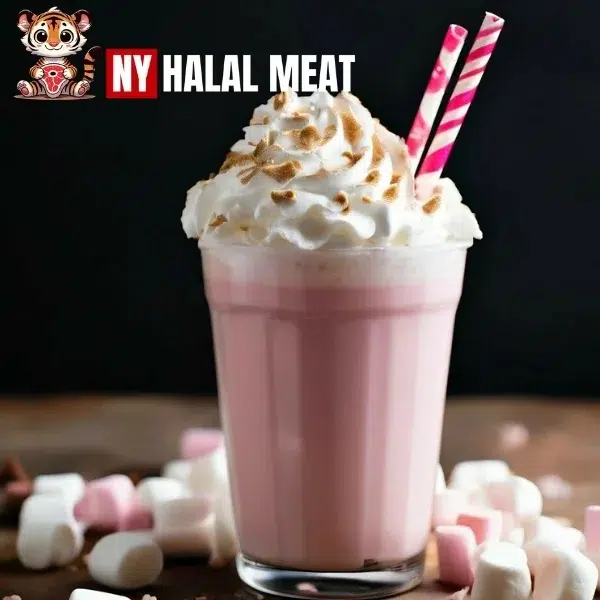Are Milkshakes Always Halal?
Are Milkshakes Always Halal? Comprehensive Guide to Ensuring Halal Compliance
Milkshakes, known for their delightful flavor and creamy consistency, often prompt Muslim consumers to question their halal status. While milkshakes generally seem safe and permissible, specific ingredients and preparation practices might make them unsuitable under Islamic dietary guidelines. This comprehensive guide thoroughly explains these considerations, providing valuable insights to help consumers confidently choose halal milkshakes.
Understanding Halal in Food and Drinks
“Halal” is an Arabic term meaning permissible according to Islamic law. It applies to all aspects of Muslim dietary habits, explicitly excluding pork, alcohol, and items contaminated by haram substances. For more insights, visit nyhalalmeat.com.
Ingredients Typically Found in Milkshakes: Safe or Not?
Common milkshake ingredients include milk, ice cream, sugar, and flavors like chocolate, vanilla, or fruit. Though seemingly safe, verifying the origin and additives of each ingredient is essential.
Ice Cream and Hidden Risks to Halal Compliance
Ice cream used in milkshakes may contain non-halal substances such as pork-derived gelatin, animal-based emulsifiers, or alcohol-infused flavors. Consumers should carefully check product labels or opt for halal-certified ice creams.
Alcohol-Based Flavorings: Frequently Overlooked Issue
Flavorings, notably vanilla extract, often contain alcohol, rendering them haram. Choose halal-certified alcohol-free alternatives, clearly labeled to ensure compliance. For reliable products, explore nyhalalmeat.com.
Importance of Checking Emulsifiers and Stabilizers
Commercial milkshakes may include emulsifiers and stabilizers derived from animal fats. Mono- and diglycerides should be checked to confirm they are plant-based or halal-certified.
Cross-Contamination Risks in Food Establishments
Cross-contamination is a concern in restaurants serving halal and non-halal products. Equipment used in milkshake preparation can inadvertently come into contact with haram ingredients, compromising halal status. Choosing halal-certified establishments significantly mitigates this risk.
The Significance of Halal Certification
Halal certification guarantees compliance with Islamic dietary standards. Certified providers strictly adhere to halal guidelines, giving consumers confidence in their food choices.
Making Milkshakes at Home: Ensuring Halal Compliance
Preparing milkshakes at home allows complete control over ingredients. Use halal-certified products like alcohol-free flavorings, verified halal ice creams, and permissible emulsifiers for assured compliance.
Evaluating Popular Milkshake Brands for Halal Assurance
Several global brands and fast-food chains offer halal-certified milkshake options or disclose ingredient details upon request. Always verify the halal status with customer service or via the brand’s website.
Special Considerations in Non-Muslim Countries
In predominantly non-Muslim countries, milkshakes might contain pork-derived gelatin or alcohol-based flavorings. Extra vigilance in verifying ingredient sources at local establishments is essential for halal assurance.
Clarifying the Halal Status of Vegetarian and Vegan Milkshakes
Vegetarian or vegan milkshakes are not automatically halal. They can still contain alcohol-based flavors or risk cross-contamination. Always review labels and certifications carefully.
Addressing Common Misconceptions About Halal Milkshakes
A common misconception is that all dairy-based foods, including milkshakes, are automatically halal. Hidden ingredients and additives often compromise this. Consumers should stay informed and verify ingredient details.
Practical Tips for Choosing Halal Milkshakes
- Always seek clear halal certification.
- Diligently inspect ingredient lists.
- Select alcohol-free, halal-certified flavorings.
- Ensure emulsifiers and stabilizers are plant-based or certified halal.
- Choose reputable halal-certified establishments or brands.
- Consider preparing milkshakes at home for complete ingredient control.
Frequently Asked Questions About Halal Milkshakes

Is vanilla extract halal?
No, vanilla extract usually contains alcohol, making it non-halal. Choose alcohol-free, halal-certified alternatives instead.
How does cross-contamination affect halal status?
Cross-contamination with non-halal substances can render milkshakes haram. Opt for clearly halal-certified establishments.
Are vegan milkshakes always halal?
Not necessarily. Even vegan milkshakes need to be verified for potential alcohol content and cross-contamination risks.
What ingredients should be checked in milkshakes?
Verify emulsifiers, stabilizers, gelatin, and flavorings are plant-based or certified halal.
Can homemade milkshakes ensure halal compliance?
Yes, homemade milkshakes guarantee halal compliance if prepared exclusively with halal-certified ingredients and careful handling.
Are milkshakes from popular chains always halal?
No, always explicitly verify each brand’s milkshake halal status through customer support or official sources.
Does halal certification guarantee complete compliance?
Yes, halal certification from reputable authorities ensures complete compliance with halal standards.
For trusted halal products and further details, visit nyhalalmeat.com.


